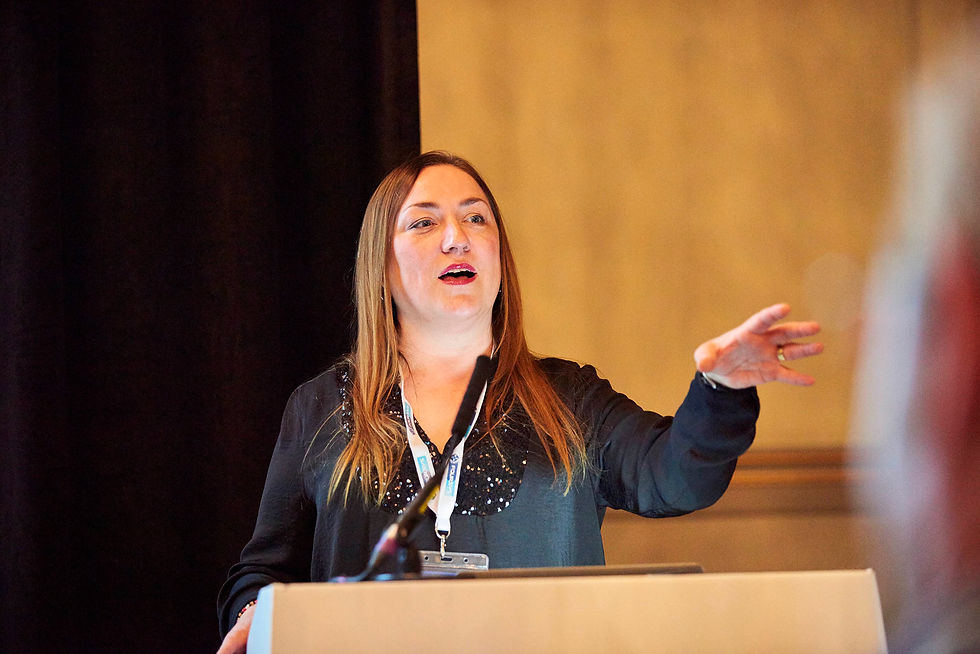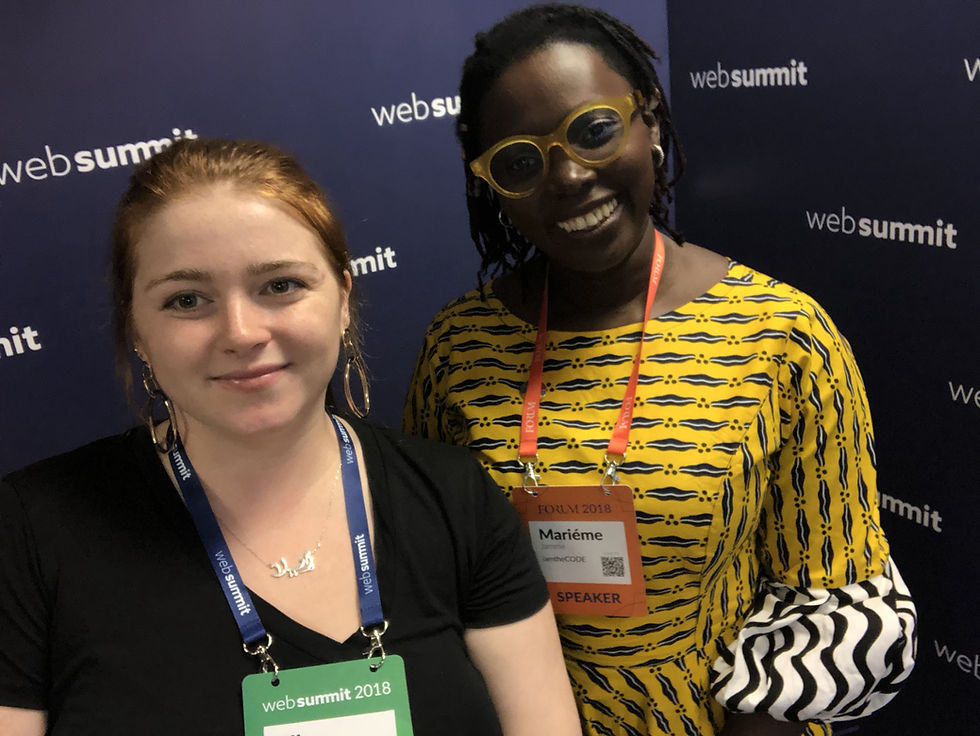#InterviewSeries | Jenny Radcliffe
- Ella Botting
- Jun 26, 2017
- 5 min read
Jenny is an expert in social engineering, which is the human element of security. She is know as the "people hacker" and is respected as a world authority in her field. It is Jenny's people skills that have been the driving force for her success and she reminds us that no matter how technical or digital our lives become, people skills are just as, if not more important. Jenny is a regular keynote at major security events, has taught all over the world and has given 4 TED talks (listed below). I think it goes without saying Jenny is an inspiration and a force to be reckoned with. With a Bachelor's in English Language and Literature and an MBA in Business Strategy, Jenny is a champion 'non-techie' in a techie world. It is an honour to gain some insights into Jenny's journey and she has offered us some spectacular advice! Thank you Jenny, and thank you to Gary @ Agenci for the introduction.

"I work in the technical space a lot, although I would never refer to myself as a "techie" or a technical person. I work with people and am known as the "people hacker" as I use psychology to breach security systems, exploiting the human element in order to find vulnerabilities and patch them so that organisations are more secure as a result."
I came from a working class Liverpool background at a time when that meant a fairly grim place. My family had no money and no one had been to university. I worked officially from when I was 12 years old doing paper rounds, babysitting, and Saturday jobs, I cleared gardens, cleaned houses and did other peoples homework for them in return for cash. I have always made my own money and through the years have worked as a chambermaid, a barmaid, a waitress, and done a million other jobs. I have several degrees including some honorary ones, lecture on many MBA and MSC courses, was made honorary lecturer at my first uni, am the Social Engineer in residence for London, have taught across the world and have given 4 TED talks, I have been asked to write my autobiography and there is a TV show in the pipeline, the second one to have been written about my life and work. I am at the stage in my career where I am respected as a world authority in what I do. I have had numerous people advise and help me on my way to this point in my life and I owe them my thanks and much more. It is partly for this reason that however busy I am I try to help when I am asked politely. Whether this be speaking at events, being interviewed or writing articles pro-bono for contacts and friends alike.
We need to be careful regardless of how technical our role is, or how much we rely on computers, or talk about tech, not to forget that people skills are equally if not more important. Every senior person in every industry I have ever worked in would agree with me, and it is, in part, why I have achieved some degree of success as a non-techie in a technical world.
People skills go far beyond being able to understand psychology and being able manipulate my way into organisations. They are so much more, and include understanding how to get things done and to motivate others in a productive and professional way, as well as knowing hot air, snake oil and nonsense when I see it and communicating appropriately and effectively when required.
I would put my success down in the most part to hard work and stamina, I started out as a social engineer, unofficially I now realise, when I was very young, but I have always worked and networked throughout my life. I do my homework, obsessively so, and am always well prepared, and prepared to be available for those I am connected to. I always do my research. I never take success for granted and I am always working hard to do more, know more and put something back. However, the most important thing has always been my love and respect for the people I meet along the way, and the exciting plans and ambitions that they have, the stories they can tell.
I do expect respect back and at this stage in my career I tend to get it. What is especially lovely is to see many of the people I have worked with, especially graduates and those I have mentored go on to do satisfying and important work. Again, I would be willing to bet that most senior people you speak to would echo this, and would say that those that do not share the sentiment make me wonder if success when purely self-serving is something that will last or satisfy.
My advice, for what it's worth, to young people or anyone coming into the workplace or looking at an entrepreneurial role is to understand that nothing worth having comes easily and you will have to work hard to earn the respect of your peers and colleagues. It is fairly easy with technology to get something done. One can put out a website, or produce a podcast relatively easily and even gain some form of recognition or notoriety in the process. However, to do something well takes time and patience and effort. To excel is to ask for help and be persistent, polite and resilient, good manners go a long way, as do courage and sleep!
Ambition requires sacrifice, I have worked many times when I have been ill or exhausted. I have missed family occasions, birthdays and significant events either working away or working on something that I have been asked to do and was important to somebody, those clients and friends, contacts and acquaintances may never know what it sometimes took, both personally and professionally, to get that talk done, write that course or travel to that location. I have swallowed my pride many times, persisted and kept going, and I am very sure of who I am and what I am worth these days, its taken a lifetime of hard work to get here.
These are qualities that won't be learnt at a keyboard, and can't be easily defined, but people know them when they see them and beyond everything else it is the respect that this bring that helps someone succeed. Every single successful person I have met has a passion for what they do matched by a tireless and relentless work ethic, they work harder and with more purpose than others. Over delivery both in terms of your work and your dealings with people, the rest is merely decoration.

Jenny's TED talks:
Jenny's Human Factor Podcasts:
Thank you Jenny for your time and words, I know I have certainly gained a lot and I hope others will too!
❤



Comments